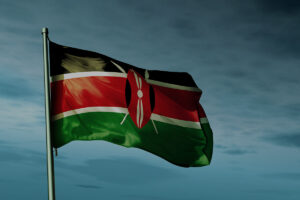In 2017, Kenya’s Supreme Court ruled that Polling Station results were final. They cannot be adjusted at a later stage. This landmark ruling guided the way the 2022 election results were handled. This is just one illustration of how instrumental the Judiciary can be in entrenching binding ground rules for critical matters in a country.
However, the Judiciary cannot act on its own volition. It only delivers rulings when petition cases are presented before it, and watertight at that. As such, ordinary citizens can deploy the Judiciary’s immense power for the good of a country.
Indeed, the Judiciary’s mammoth power was spotlighted last week during the revolutionary 3rd Regional Symposium on Greening Judiciaries in Africa, which took place in Nairobi.
Held against the backdrop of severe famine in the Horn Africa, this Symposium’s theme was quite relevant, “Strengthening the Role of Judiciaries in addressing climate change in Africa.” The Judiciary is indeed uniquely equipped to tackle Climate Change issues decisively. It can do so through a variety of interventions that were spotlighted in the Symposium.
Firstly, polluters must be held accountable. Thankfully, a strong precedent was set in Mombasa’s Environment and Lands Court. In July 2020, Environment and Lands Court Judge Ann Omolo awarded over 3,000 residents of Owino Uhuru Sh1.3 billion for deaths, sickness and damages caused by emissions from a lead-smelting factory. Unfortunately, affected residents are yet to receive this money.
This brings me to the second intervention that must be enforced. The recently concluded Symposium asserted the need for guidelines to enforce court orders. In order to uphold public confidence in the judicial process, court orders must be obeyed to the letter, and by everyone regardless of their station in society. That must happen speedily because justice delayed is justice denied.
As a case in point, let’s revisit the tragic scenario in Marsabit back in mid-January. Heavy rains swept away over 1,500 sheep and goats leaving great loss in their trail. As much as the floods were an act of nature, their impact could have been drastically reduced through better flood mitigation measures. In these circumstances, who, according to the law, is responsible for this death and destruction? What legal steps can a citizen take to ensure that those responsible compensate them? Who should fund this legal process if victims are unable to do so? Citizens must demand answers to these questions because they touch on their wellbeing and livelihoods.
Indeed, citizens have a societal obligation to engage the Judiciary in tackling the environmental and social challenges of our times. Doing so will result in replenishment, inclusivity and continuity. I dare say that it is largely because we are not taking our social responsibility seriously that our environment experiences depletion, not replenishment. The Judiciary can halt this, but only if we engage it.
Indeed, critical environmental rights are being violated every day. Yet the United Nations makes it clear that every human being should enjoy the universal right to a clean, healthy, and sustainable environment. This right is also enshrined in our constitution, which states in Section 42 that every person has the right to a clean and healthy environment.
As such, no Kenyan should settle for anything less than this. If the environment in your residential neighborhood or workplace isn’t clean, healthy and sustainable, someone is terribly violating your right. It is your civic duty to ensure that the violation stops immediately.
Finally, I suggest Kenya’s parliament must act speedily to develop progressive policies and laws that secure a clean and healthy environment. We also need policies and laws that clearly apportion culpability for the preventable effects of climate change. For instance, if early warning systems forewarn that rains will fail, why should we stand by idly as famine rages havoc? I suggest that a new entity to standardize societal obligation be held duly responsible for that. And the Judiciary must step in to affirm the citizens’ right. Tufuate sheria! Think green, act green!



